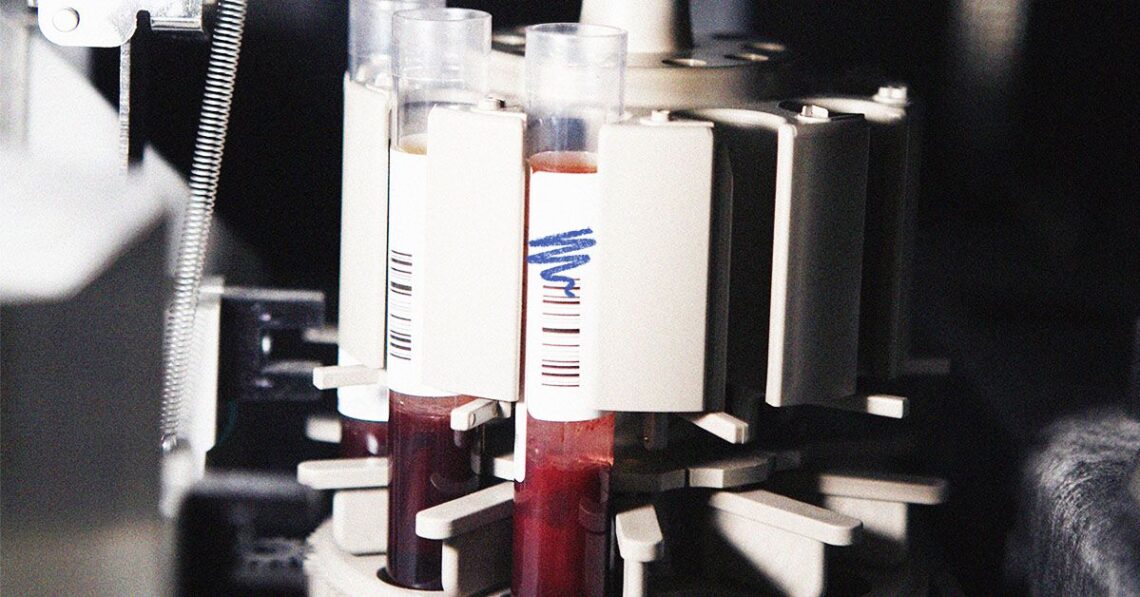- Blood tests can be used to detect proteins circulating in the blood.
- These proteins can, and are used to determine and predict our health, as they give an insight into what levels different systems are operating at.
- Many diseases, particularly uncommon diseases, are difficult to diagnose as there is no known blood test that can be used to detect them.
- A team of researchers used UK Biobank data to determine which proteins could be used to detect over 60 conditions.
Researchers have identified protein signatures in blood tests that can be used to detect or predict up to 67 diseases, using UK Biobank data in a cohort of nearly 42,000 participants.
They say they can more accurately identify whether diseases, including multiple myeloma, non-Hodgkin lymphoma, and motor neuron disease, will develop in the next 10 years than traditional clinical history taking.
“Proteomics is the study of structure and function of proteins wherever they are found in our bodies. Since proteins are key players in oncogenesis, their identification can be correlated with existing disease, spread of disease, or in the early stages of initiation of transformation from normal cells to malignant ones,” said Richard Reitherman, MD, PhD, board certified radiologist at MemorialCare Breast Center at Orange Coast Medical Center in Fountain Valley, CA, who was not involved in the research.
“For example, blood levels of PSA (prostate-specific antigen) are used as a screening test for the existence of prostate cancer or its spread in men who have been treated for prostate cancer,” he told Medical News Today .
The results were published in Nature Medicine.
Researchers from GlaxoSmithKline (GSK), the U.K., and Germany highlighted that while certain clinical measurements and history-taking can be used to predict the risk of developing some common diseases, people with rarer diseases do not benefit as much from this clinical model. The lack of blood tests for some conditions means there are delays in…
Read the full article here







